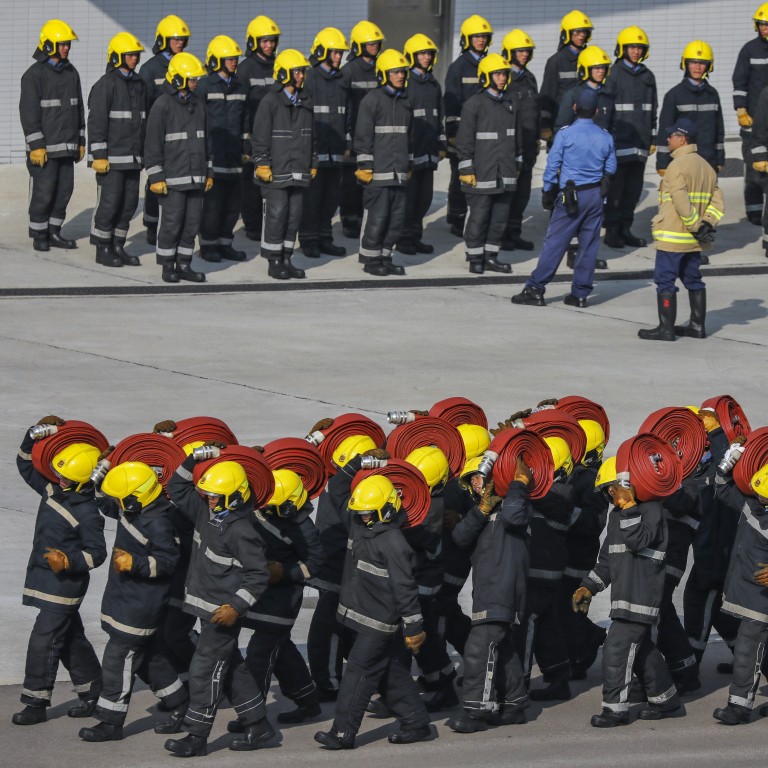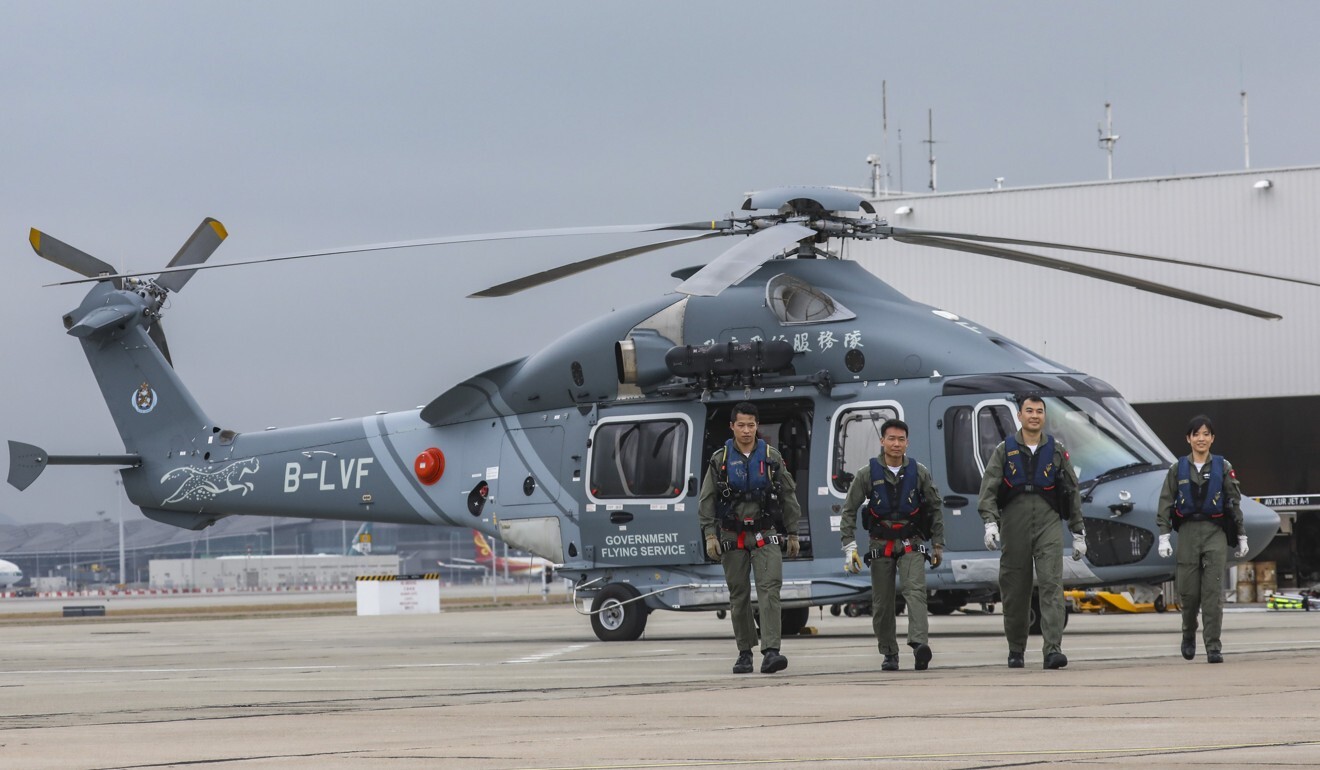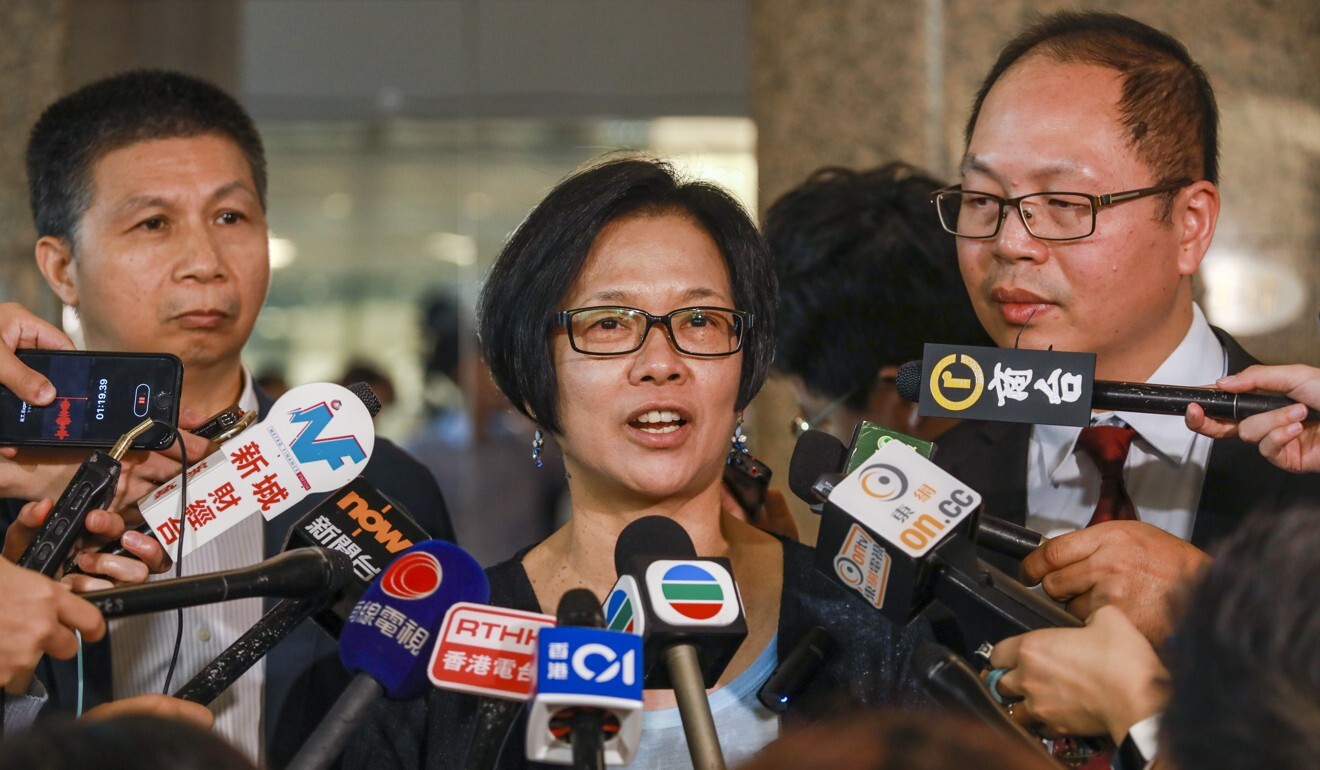
Disciplined services staff slam proposal for pay freeze and call on Hong Kong government to stick to existing salary adjustment mechanism
- Staff side of Disciplined Services Consultative Council says it is strongly opposed to proposal to suspend wage increases
- Hong Kong Chinese Civil Servants’ Association had earlier offered to accept a salary freeze for the next few years in light of the economic situation
Representatives of disciplined services personnel have slammed a proposed pay freeze touted by a leading civil service union and urged the Hong Kong government to stick to the existing mechanism for salary adjustments.
The staff side of the Disciplined Services Consultative Council (DSCC), which covers about 50,000 employees from correctional services, customs, fire services, immigration and the Government Flying Service, said on Sunday it was strongly opposed to a proposal in the community for the government to put aside the pay adjustment mechanism this year and adopt a salary freeze.
The association, which represents one-third of government workers, had also called for the suspension of the annual pay trend survey for two years from 2021, saying it did not give a true reflection of the current economic situation.

Last month, the survey suggested salary rises of between 1.15 per cent and 1.98 per cent for civil servants, the lowest increase in almost a decade. The lowest earners would get a 1.15 per cent rise, those in the middle ranks 1.98 per cent, and the highest earners 1.68 per cent.
But association president Li Kwai-yin had said the public would not be happy if civil servants got a rise when many others were facing pay cuts or lay-offs so it was best not to follow the survey and to freeze salaries.
Hong Kong civil servants still in line for pay rise of up to 2 per cent
Under the mechanism, the administration decides on the annual wage adjustment for its workers based on net pay trend indicators derived from the survey, the state of the economy, changes in the cost of living, the government’s fiscal position, staff side pay claims and civil service morale.
The pay freeze proposal was criticised by other civil servant groups including the Police Force Council and Junior Police Officers’ Association, which last week said there was no reason to deviate from the mechanism.
Echoing those sentiments, staff-side representatives on the DSCC said on Sunday they also respected the established mechanism and it should be followed.

“We hope the government will respect the existing mechanisms, paying attention not just to the pay trend indicators but the other listed factors especially civil service morale,” DSCC staff-side chairwoman Bonnie Lo Hoi-sze said.
Hong Kong civil servants fighting 21st-century disease with 20th-century tech
“The government as Hong Kong’s biggest employer could set an example. Once salaries of public sector staff and the disciplined services are unreasonably adjusted, other employers may follow suit immediately, affecting the public.”
The DSCC said the pay adjustment had become politicised in recent years with groups calling for wage freezes or cuts. It urged the government to follow the mechanism or the morale of the disciplined services would be damaged.

